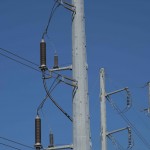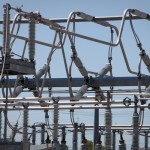Regulating the Price of Power in Texas’ Deregulated Market
Even in Texas, where it may seem the sky’s the limit for making fortunes in the energy business, there are rules. Or at least, there are rules when it comes to the price of one form of energy: electricity.
In this case, there is the rule called a “price cap” and it’s imposed by state regulators on the wholesale price of electricity (what retail providers pay for the electricity they then sell to you). Now, the state’s Public Utility Commission (PUC) may raise the cap, letting big power generating companies make more money during times of enormous demand.
The cap comes into play during critical times like what Texas experienced this past year, first with extreme winter cold then record summer heat, driving demand for electricity through the roof. Wholesale prices that are now averaging around $40 per megawatt skyrocketed this past August when persistent triple-digit temperatures had air conditioners running non-stop. The demand taxed the state’s total electric supply nearly to its limit. On seven days that month, wholesale prices spiked to $3,000 per megawatt, the state-imposed price cap.
At a meeting last week of the commission, one of the three commissioners, Kenneth Anderson, surprised some in the audience when he seemed to indicate a willingness to eliminate the price cap.
“I’ve got no particular problem raising the system wide offer cap, or eliminating the cap or adjusting the cap,” Anderson said.
But the next day, he seemed to backtrack. In response to questions about where he stood on changing the cap, he told StateImpact Texas: “The short answer is, we’re not talking about eliminating the cap at all. We’re talking about whether it makes sense to increase it.”
The commission is concerned that power generators in Texas are falling behind in building enough new generating units, so they need a financial incentive–the prospect of higher profits–to build new units. A 2011 report by the North American Electric Reliability Corporation said Texas had the smallest margin of reserve power generation capacity in the nation. What’s more, the Electric Reliability Council of Texas (ERCOT) earlier this month warned that next summer could again strain the state’s electric grid to the point of “emergency procedures and conservation appeals.”
“I think we need more generation,” said Anderson.
Not everyone agrees.
“I would be reluctant to suggest we make major changes in the market in terms of pricing or giving more money to generators just because we fear these lower reserve margins in the future,” said Clarence Johnson, the former director of regulatory analysis for the Office of Public Utility Counsel, a state agency that represents consumers.
Johnson points to past projections that he said missed the mark. For example, in a 2006 report, ERCOT warned that the “reserve margins” of available power in peak summer months could fall to less than 5% by 2011. It didn’t happen. Updated reports put the figure closer to 14% which is above the 13.75% level ERCOT now sets as a target.
Johnson said price caps have proven to be important as a deterrent to “gaming” the market.
“If you have no price caps…it encourages gaming of the Enron-style that we saw in California,” said Johnson.
In what became infamous in later reports on the downfall of the Houston-based energy giant, Enron had artificially driven up the price of electricity in California by taking some of its power plants there offline. Enron later settled with agencies in California and eventually went bankrupt.
In Texas, the PUC’s Kenneth Anderson said that would not happen because the state has taken precautions, writing a “power abuse” rule in its regulations.
“Every time there is a price spike, they always look into the reason behind it,” said Anderson.
ERCOT REPORT ON AUGUST 2011 PRICE SPIKES
NATIONAL REPORT ON POWER RESERVES






